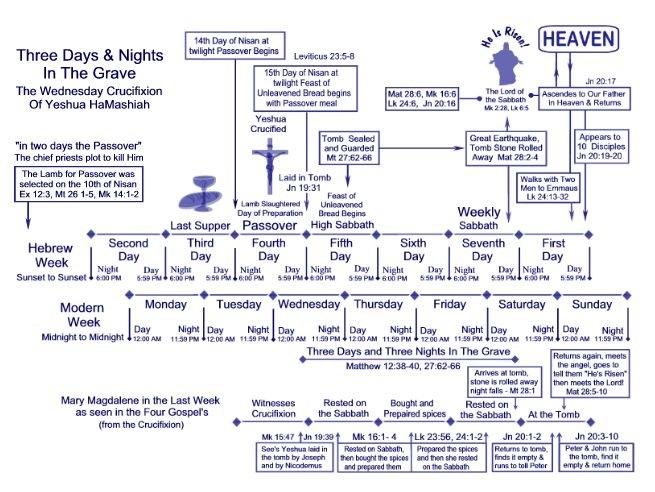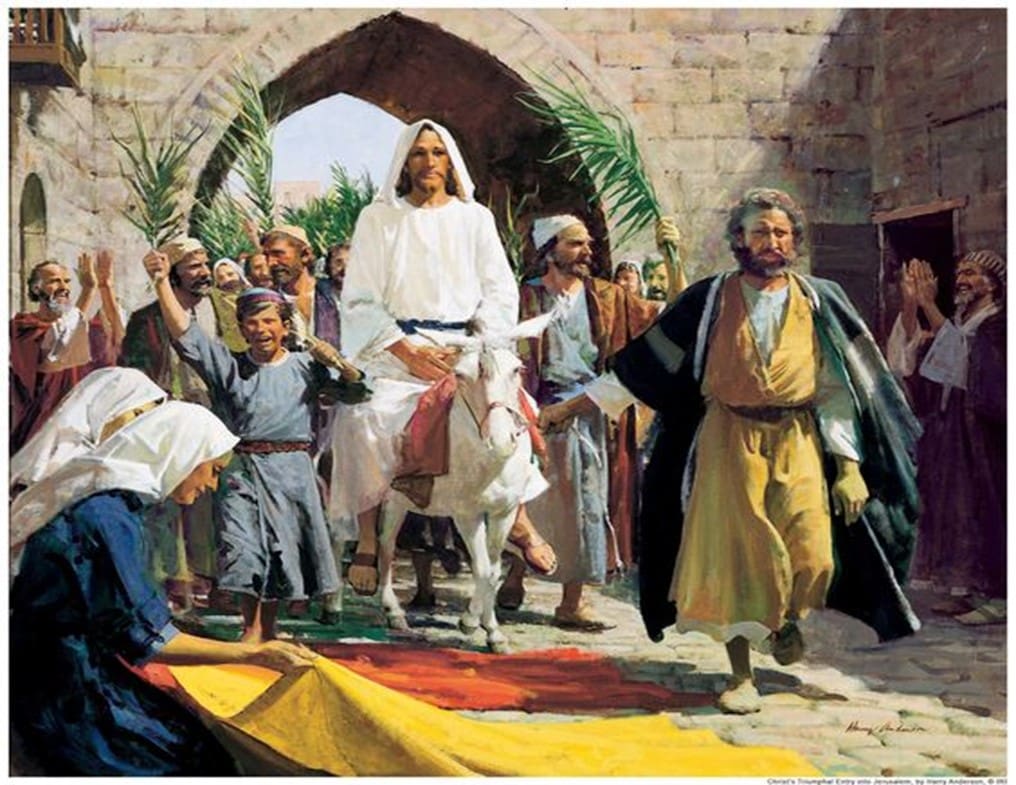Old Testament Reading – Zechariah 9:9-10
New Testament Reading – Luke 19:28-48
The Suffering Savior
“Jesus’ Triumphant Entry”
Mark 11:1-26
Wayne J. Edwards, Pastor
During His Galilean Ministry, Jesus presented Himself as the Messiah, the Savior sent from God.
- His message was clear: “The time is fulfilled, and the kingdom of God is at hand. Repent, and believe in the gospel.” – Mark 1:15
- His miracles were many: “Jesus went about all Galilee, teaching in their synagogues, preaching the gospel of the kingdom, and healing all kinds of sickness and all kinds of disease among the people.” – Matthew 4:23
- His motive was pure: “For even the Son of Man did not come to be served, but to serve, and to give His life a ransom for many.” – Mark 10:45
Church historians refer to Jesus’ entrance into Jerusalem as “The Lord’s Triumphal Entry.”
- While this was the mindset of the people of Israel, for they were expecting the arrival of a human king to free them from their Roman bondage, this was not the purpose or intent of what Jesus was doing.
- In Mark 10:33-34, Jesus told His disciples: “Behold, we are going up to Jerusalem, and the Son of Man will be betrayed to the chief priests and to the scribes; and they will condemn Him to death and deliver Him to the Gentiles; and they will mock Him, and scourge Him, and spit on Him, and kill Him. And the third day He will rise again.”
- In Zechariah 9:9, the prophet said: “Rejoice greatly, O daughter of Zion! Shout, O daughter of Jerusalem! Behold, your King is coming to you; He is just and having salvation, lowly and riding on a donkey, a colt, the foal of a donkey.”
- Zechariah said the man who fulfilled this prophecy would be the King they were looking for – the Messiah – and they would honor and praise Him as such. However, He would not be the King they were expecting, and in the end, they would reject Him.
- Instead of Him being a conquering King with all His captives behind Him, Jesus would be the Suffering Servant, who had come to set the captives free!
- His crown would be a cross.
- His scepter a reed.
- His kingdom would not be of this world.
According to Sir Robert Anderson of Scotland Yard, who spent the last 20 years of his life in the study of the Bible, Jesus entered Jerusalem on April 6, AD 30, exactly 430 years from the day the King of Persia issued the decree allowing Nehemiah to return and rebuild the walls of Jerusalem, fulfilling the prophecy of Daniel.
1. A Living Demonstration of His Deity – Mark 11:1-6, Vs. 3 – “And if anyone says to you, ‘Why are you doing this?’ say, ‘The Lord has need of it,’ and immediately he will send it here.”
Jesus and His disciples camped at Bethpage, which is on the Mount of Olives, overlooking Jerusalem.
- This as the mountain where:
- Jesus and the disciples spent a lot of time together.
- Jesus sweat drops of blood as He prayed to the Father.
- Jesus physically ascended back into heaven.
- Jesus will return when He comes again as the King of Kings and the Lord of Lords.
Jesus sent two of the disciples to another village to find a specific colt of a donkey and bring it to Him.
- That specific colt would be:
- Outside the village.
- Tied instead of running loose.
- Never been tamed or broken to ride.
- Gladly given by its owner, once he knew Who it was for.
- By telling these men what they would experience when they obeyed Him, Jesus was asserting His Omniscience. Jesus could speak of the future as if were the present.
- By telling these men what to say when the owner of the colt asked why they were taking his colt, Jesus was asserting His Sovereignty. He is Lord over all things.
- When we recognize the Lordship of Jesus Christ, we will obey Him without hesitation, reservation, qualification, or equivocation.
“The question in salvation is not whether Jesus is Lord, but whether we are submissive to His lordship. He is Lord, and those who refuse Him as Lord cannot use Him as Savior.”
Dr. John MacArthur
2. A Living Manifestation of His Ministry – Mark 11:7-10, Vs. 9 – “Then those who went before and those who followed cried out, saying, hosanna, blessed is He who comes in the name of the Lord!’
As Jesus entered the city, the people cried out:
- Psalm 118:26 – “Hosanna, Hosanna, blessed is He that comes in the name of the Lord!”
- Hosanna means “Save us now!”
- Mark 11:10 – “Blessed be the Kingdom of our Father, David, that comes in the name of the Lord. Hosanna in the highest!”
Having witnessed the resurrection of Lazarus, and knowing it was the time of Passover, the people had concluded that Jesus was the Messiah who had come to restore the nation to its former glory – Jesus was going to be their King.
- They were proclaiming Jesus as the King they wanted Him to be, but not the King He was.
- Jesus had not come to be a human king – but to prove Himself as the King of Kings!
- Jesus had not come to celebrate His victory over His enemies, for He still faced the crucifixion before He could enjoy His resurrection.
When the Pharisees heard the crowds praising Jesus as their King, they asked Him why He had not stopped them.
- In Luke 19:40, Jesus said: “I tell you, if these should hold their peace, the stones would immediately cry out.”
“Coming to Him as to a living stone, rejected indeed by men, but chosen by God and precious, you also, as living stones, are being built up a spiritual house, a holy priesthood, to offer up spiritual sacrifices acceptable to God through Jesus Christ. You are His own special people, that you may proclaim the praises of Him who called you out of darkness into His marvelous light.”
From 1 Peter 2:4-9
3. A Living Examination of Man’s Religion – Mark 11:11-26 – Vs. 17 – “Then He taught, saying to them, “Is it not written, ‘My house shall be called a house of prayer for all nations’? But you have made it a ‘den of thieves.’”
The Bible says Jesus WEPT over the city of Jerusalem because they rejected Him as the Messiah: The Savior sent from God, and He knew what was going to happen to them.
- Jesus walked through the temple and was grieved over the hypocrisy of their religious ceremonies.
- The next day He cursed a fig tree because it was flush with leaves, but it produced no fruit – symbolizing the nation of Israel that was ripe with false religion, but it had failed to produce life.
- The next morning the fig tree was withered down to its roots.
- Then Jesus went into the temple and cleansed it from those who were selling merchandise, and those who were making a mockery of the temple.
- Jesus cursed their religion as He cursed the fig tree, and in 70 AD, years after the resurrection of Jesus, the temple was destroyed.
- Jesus told the disciples that God had not forsaken the people of Israel, but the people of Israel had lost their faith in God.
- Their spiritual life had withered – they had no capacity to produce life-giving fruit.
- Jesus said the “mountain” that was blocking the power of God in their lives was their lack of forgiveness of those who were trespassing against them, including the Roman Government.
- The mountain that prevents our Lord’s triumphant entry into our lives is unforgiveness.








